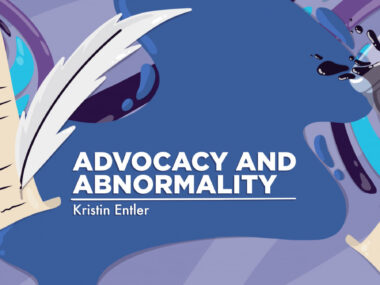Poor or fair health in CF for some despite CFTR modulators: Study
1 in 7 patients on Kalydeco or Trikafta report little easing of symptoms
Written by |

While most adults with cystic fibrosis (CF) view their health as very good or excellent while on Kalydeco (ivacaftor) or Trikafta (elexacaftor/tezacaftor/ivacaftor) — both approved CFTR modulator therapies for CF — about 1 in 7 still report their health as fair or poor, a survey study found.
According to the researchers, these findings highlight the need to address ongoing physical symptoms in CF patients on CFTR modulators.
“Those who continue to report poor/fair health are the least likely to report improvements in physical [well-being] or in burden of care, including in general physical health (e.g., ability to exercise, fatigue, pain), cough, gastrointestinal issues, and time spent doing CF treatments,” the investigators wrote.
The study, “Physical well-being and burden of care in adults on modulator therapy: A mixed methods study of patient-reported experiences from the Well-ME survey,” was published in the Journal of Cystic Fibrosis. It was funded by a research grant from the CF Foundation.
For most, respiratory symptoms improved with CFTR modulators
CFTR modulators like Kalydeco and Trikafta — both marketed by Vertex Pharmaceuticals — target the cause of CF by correcting the faulty CFTR protein that drives the disease in most cases. However, the researchers noted, while such treatments improve lung function or at least ease its declines in most patients, other symptoms of CF may remain unaddressed.
People with CF “continue to see the full spectrum of their health impacted by the disease, and increasingly clinicians and researchers are incorporating wellness into their assessments,” the team wrote.
Wellness, they added, “refers to a multifaceted holistic construct that encompasses several domains including physical, mental, emotional, social, and spiritual well-being.”
To understand how adults with CF who are being treated with Kalydeco or Trikafta assess their physical well-being, the team of U.S. researchers analyzed data from the 2022 Wellness in the Modulator Era (Well-ME) survey. Among the 414 patients surveyed, 243 (59%) described their overall health as very good or excellent. Slightly more than one-quarter — 114 or 27.5% — reported their overall health as good, while 57 (14%) described it as fair or poor.
Most patients noticed eased respiratory symptoms while on treatment. However, those who rated their health as fair or poor were less likely to experience improvements in overall physical health, fatigue, and ability to exercise compared with those who rated their health as good or better.
Fewer improvements in pain for patients with poorer health
Patients reporting poorer health tended to be older, were hospitalized recently, and had a lower household financial status, the data showed.
These individuals also had poorer lung function, as measured by percent predicted forced expiratory volume in one second (ppFEV1), a commonly used assessment that gauges how much air a person can forcibly exhale in one second.
They also reported fewer improvements in pain, sinus issues, and coughing than those who considered their health very good or excellent. People who rated their health as fair or poor, or even good, were less likely to experience improvements in digestive problems or reduce their use of other medications compared with those reporting very good or excellent health, per the study data.
Physical and mental health-related quality of life were also worse in participants reporting poor or fair health, the researchers found. Likewise, a larger proportion of patients reporting poor or fair health said their burden of daily care was severe and that CF treatments interfered with their daily activities most or all of the time.
I am grateful for the lung improvement, but instead, I now have severe side effects and GI [gastrointestinal] issues taking over and demanding care and using up my energy.
An additional analysis looked into participant responses to questions about physical well-being and experience of care, finding seven common themes: eased respiratory symptoms, weight gain, digestive issues, pain/fatigue, improved ability to exercise, side effects, and less healthcare use.
Participants with very good or excellent health often reported having more energy and more ability to exercise, as well as less need for hospitalizations and medications.
“I feel like a normal person. I’m not coughing constantly or having to deal with tons of mucus in my lungs and head. It is astonishing. I feel so much better,” said a 34-year-old woman with very good health.
In contrast, those with poor or fair health commonly reported digestive symptoms, fatigue, and pain.
“I am grateful for the lung improvement, but instead, I now have severe side effects and GI [gastrointestinal] issues taking over and demanding care and using up my energy,” noted a 50-year-old woman with poor health.
Overall, while CFTR modulators improve lung function for most adults with CF, a subset continues to experience ongoing physical symptoms, the researchers concluded. The team said these findings highlight areas for improvement.
“A better understanding of physical well-being and burden of care may help identify underrecognized [co-existing conditions] to improve care,” the scientists wrote.








